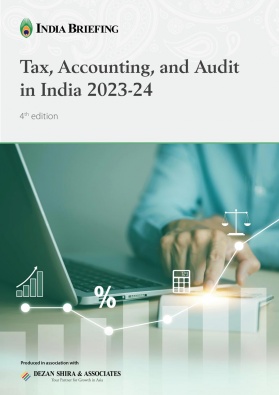28% GST Recommended on Online Gaming, Casinos, and Horse Racing in India: Implications for Businesses
During its 50th meeting on July 11, India’s GST Council made a significant decision to impose a uniform 28 percent goods and services tax (GST) on the full face value of online gaming, casinos, and horse racing. To implement this decision, the government is expected to introduce a legal amendment during the monsoon session of Parliament. This amendment will include online gaming and horse racing as actionable claims, allowing for their taxation without differentiating between games of skill or chance.
While the government insists that this decision is not intended to harm any industry, online gaming companies have expressed concerns about the potential impact on their businesses. They fear that this move could adversely affect their volumes and ultimately threaten the viability of their companies.
During its 50th meeting on July 11, 2023, India’s GST Council made a significant decision regarding the taxation of online gaming, casinos, and horse racing. A uniform tax rate of 28 percent will be applied to the face value of chips purchased in casinos, the full value of bets placed with bookmakers or totalizators in horse racing, and the full value of bets placed in online gaming. The alternative option of levying tax on gross gaming revenue or platform fees was considered but was not favored by the ministerial panel.
To implement this decision, the government will introduce amendments to the GST-related laws. These amendments will include online gaming and horse racing in Schedule III as taxable actionable claims. Previously, only lottery, betting, and gambling were classified as actionable claims.
The decision to apply a uniform tax on gaming and gambling platforms impacts a wide range of companies operating in the online gaming industry. This decision affects not only gambling platforms but also gaming companies that have made significant efforts to differentiate themselves by emphasizing games of skill rather than games of chance. These companies have invested time and resources in lobbying for a clear distinction between skill-based games and gambling activities.
It’s worth noting that the online gaming industry stands out as one of the few segments within the internet economy that comprises multiple highly profitable companies. Thus, the impact of this decision on the online gaming sector is significant, potentially affecting the profitability and operations of these companies.
India’s Federal Finance Minister Nirmala Sitharaman, who heads the GST Council, emphasized that the objective is not to hinder any industry but to ensure that all businesses operate within a fair taxation framework.
Timeline of discussions and recommendations by GoM and GST Council on taxation of casinos, horse racing, and online gaming
A Group of Ministers (GoM) was formed to address taxation issues related to casinos, horse racing, and online gaming. The GoM, led by Meghalaya Chief Minister Conrad Sangma, included members from eight states – West Bengal, Uttar Pradesh, Goa, Tamil Nadu, Telangana, Gujarat, and Maharashtra. In June 2022, the GoM submitted its first report, which was subsequently discussed in the 47th meeting of the GST Council held in June last year.
The initial report put forth a recommendation for a uniform tax rate of 28 percent on the full value of consideration paid, including contest entry fees, pooled bets, and purchased coins, for casinos, race courses, and online gaming. It proposed that there should be no differentiation in GST levies based on whether an activity is classified as a game of skill, chance, or a combination of both.
However, Goa raised concerns about the GoM report, leading to a review by the Council. To address these concerns, the GoM conducted three meetings in July, September, and November last year. The discussions primarily focused on two key questions: whether race courses and online gaming activities should be categorized as betting and gambling based on various High Court and Supreme Court judgments, and how the supplies of casinos, race courses, and online gaming should be valued. Valuation options included full-face value of bets placed or Gross Gaming Revenue (GGR) for casinos, totalizator fee for race courses, and platform fee/GGR for online gaming.
Member states held differing opinions on valuation norms. West Bengal and Uttar Pradesh favored taxing all three activities based on the full face value of consideration paid, while Gujarat advocated for taxing online gaming solely on platform fees. Maharashtra proposed that all activities be fully taxable without differentiation based on skill or chance. Telangana and Tamil Nadu also supported taxing the full face value. Goa suggested taxing casinos based on GGR and online gaming based on platform fees at a rate of 18 percent.
Meghalaya, as the convenor of the GoM panel, recommended taxing casinos based on GGR.
How will the new tax structure be operationalized?
Implementation of the tax on casinos, horse racing, and online gaming will involve a change in the taxation structure. Previously, gaming companies paid an 18 percent tax on the platform fees they charged, considering the activities as games of skill. However, the Indian Revenue Department has maintained that the tax rate for these categories is actually 28 percent, and the recent decision by the GST Council serves as a clarification.
To understand the impact, let’s consider an example. Suppose a gaming platform charges a 10 percent platform fee, which is the commission taken from a player to participate in a contest. If a player deposits INR 100, the platform earns INR 10. Under the previous tax structure, the 18 percent GST was applicable to this INR 10. This means that the effective GST on every INR 100 was INR 1.8.
However, under the new tax structure, the entire face value of the bet or consideration paid will be subject to a 28 percent GST, rather than just the platform fee. This means that for every INR 100 deposited, the GST amount will be INR 28. Consequently, under the new regime, online games of skill will face a significant increase in the GST they need to pay, approximately 15.6 times higher.
India’s Revenue Secretary Sanjay Malhotra clarified that the GST will be levied at the time of payment for these activities. Additionally, he mentioned that efforts will be made by tax authorities, payment channels, and implementation authorities to collect the tax, especially for overseas companies providing online gaming services in India.
Challenges and criticisms surrounding implementation of 28 percent tax on gaming industry
The decision to implement a 28 percent tax rate on the gaming industry has raised significant concerns and received criticism from various stakeholders. Companies within the gaming industry had hoped for a more pragmatic approach, where the GST would be levied at 18 percent specifically on entry fees or platform charges. However, the decision now subjects gaming, casino, and betting services to a uniform 28 percent GST on the full amount collected, including prize money distributed to players. Industry experts highlight that this tax rate poses substantial challenges to gaming companies, potentially impacting their cash flows and overall viability.
The All India Gaming Federation (AIGF) strongly opposes the decision, deeming it unconstitutional, irrational, and egregious. The federation warns of potential job losses and the unintended benefit it may provide to illegal offshore gaming platforms, creating an unfavorable scenario for legitimate tax-paying players.
Similarly, the E-Gaming Federation (EGF) expresses concerns that a tax burden exceeding revenues will render the online gaming industry unviable, paving the way for black market operators to thrive. They argue that this decision will not only hamper employment opportunities but also have a negative impact on marquee investors in the gaming sector.
Industry watchers also draw a parallel between the 28 percent tax on online skill gaming and sin taxes imposed on products like cigarettes and alcohol. The contention is that such a high tax rate undermines the industry’s growth potential and fails to consider the distinction between games of skill and games of chance.
Legal experts weighing in on the matter, suggesting that the valuation method employed may violate GST provisions regarding taxable supply valuation. This opens the possibility of potential challenges to the decision based on the argument of non-compliance with GST regulations.
About Us
India Briefing is produced by Dezan Shira & Associates. The firm assists foreign investors throughout Asia from offices across the world, including in Delhi and Mumbai. Readers may write to india@dezshira.com for more support on doing business in India.
We also maintain offices or have alliance partners assisting foreign investors in Indonesia, Singapore, Vietnam, Philippines, Malaysia, Thailand, Italy, Germany, and the United States, in addition to practices in Bangladesh and Russia.
- Previous Article India’s Skill Gaming Industry: Investment Outlook and Regulatory Landscape
- Next Article India’s 50th GST Council Meeting July 2023: Key Outcomes for Businesses









